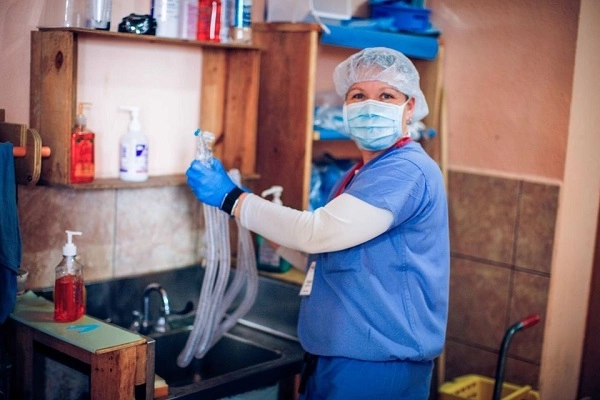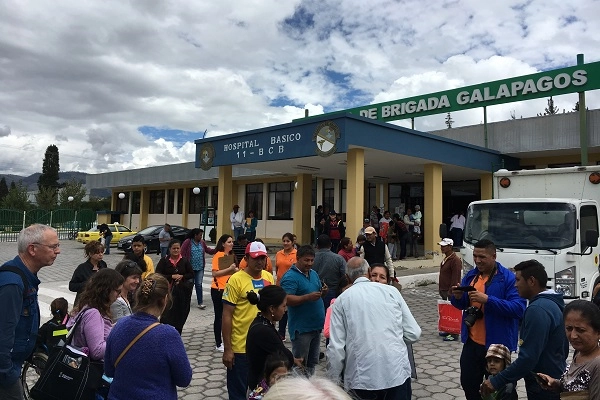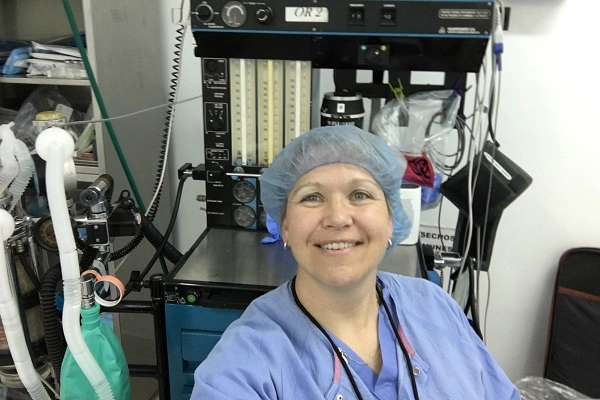Doctor’s passion for health care grows here and abroad


Angie Anderson, DO, has always enjoyed working with her hands. That ultimately led to a career in medicine and anesthesiology.
In 2003, Dr. Anderson participated in an elective rotation as a fourth year med student through DOCARE International. She traveled to an underserved area in Guatemala to staff a rural clinic. The property housed a school and an operating room with fly strips hanging from the ceiling.
“You never know what equipment you’ll have,” she said. “You hope to have clean water and that the electricity stays on. We used a lot of duct tape to keep things intact.”
Some people walked for days to get to the clinic and waited in long lines to potentially have surgery.
“Many of the people had no access to medical care,” Dr. Anderson said. “It’s a humbling experience to realize how much we have and how little they have.”
Dr. Anderson returned to Guatemala on two other occasions with the group Refuge International in 2009 and 2011.
“Mission trips give me a better appreciation for what I do,” she said. “I get thank-yous here, but it’s a different level there. Sometimes people can describe how appreciative they are; other times it’s a cryfest.”
Dr. Anderson traveled to Peru in 2015 and then Ecuador in April 2016 to provide anesthesiology services as part of a 22-person medical team. She has a vivid memory from that most recent trip.

“A woman in her 70s needed a hysterectomy and could not afford the surgery at her local hospital,” Dr. Anderson said. “She came to our clinic and was cleared for surgery the next day.”
“We told the news first to a Spanish interpreter who was the woman’s daughter. After hearing the translation, the older woman started crying and said something back and then the daughter started to cry.”
“We eventually learned the older woman was overjoyed with happiness and gratefulness that we were going to take care of her — and then we started crying,” Dr. Anderson said.
Dr. Anderson says mission trips are not vacations. The five-day week is often filled with 15-hour days. The week begins with a triage day and then the operations start.
“They’re long, exhausting days that tug at your heartstrings for all the right reasons,” she said. “It’s pretty cool. We see smiles on faces and pure joy in families after getting surgery they’ve needed for years. We’ve changed people’s lives.”

As for the future, Dr. Anderson’s role as section chief at Salem Health keeps her quite busy. However, her schedule may allow her to go on mission trips every other year.
“If people have the capability and capacity to go on at least one trip in their lifetime, they should definitely do it,” she said.